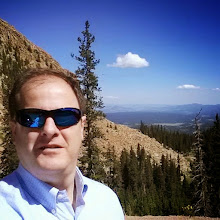As Terri Shiavo nears death while the Judicial and Executive Branches sit on their collective hands, one wonders how we came to this place where the life of one person becomes such a political issue.
We cannot turn on the News without hearing about the Terri Shiavo case: Updates on legal briefs, attorneys flying between Pinnelas County, Atlanta, GA and Washington, D.C.; strings of arrested adults and children desperately attempting to give Terri water; interviews with attorneys and relatives and pundits.
Government as well has put much of its business on hold: Congress totally shifted its agenda for more than a week in a desperate attempt to obtain
de novo review of the case and judges from Pinnellas County to Atlanta to Washington have moved their dockets to the side for all night reviews of the case.
This draws comparisons to another case of a disabled person who was the subject of hours of television time and Congressional hearings. This person was severly handicapped. Care for this person cost hundredes of thousands of dollars and the dedication of family and nursing care.
What was this person's name you ask? Christopher Reeve. Except no court determined his care. His wife stayed with him to the bitter end. If he weren't Christopher Reeve, by his own admission, he would have had a horrible quality of life. No, he did not have brain damage, but the need for specialized care was equally great. But we fought for him. We adored him. We sympathized with his condition and lauded him as a hero. He was Superman in our eyes humbled by circumstance.
Why did we care so much for Reeve and yet stand on the precipice of discarding Terri Shiavo? There is a factor which binds these cases inexorably together, and it's not that they were both disabled. It's the culture of death which has sprung up in our laws since some short amount of time prior to 1973 and Roe v. Wade.
In the case of Christopher Reeve, we will destroy human life while an embryo to obtain a cure. Terri Shiavo is being destroyed to make life easier for a husband. Though we don't fully understand it yet, we know as a culture that we prefer the death of uneasy things to keep things easy. Yet the bulk of our history is the acceptance of uneasiness as the price for freedom.
Throughout history, despotism has always arisen out of the pursuit of peace and ease. And despotism is the power of the sword; it grasps within its hands the power of life and death. Free societies err on the side of life. I question at this moment whether we are truly free.









